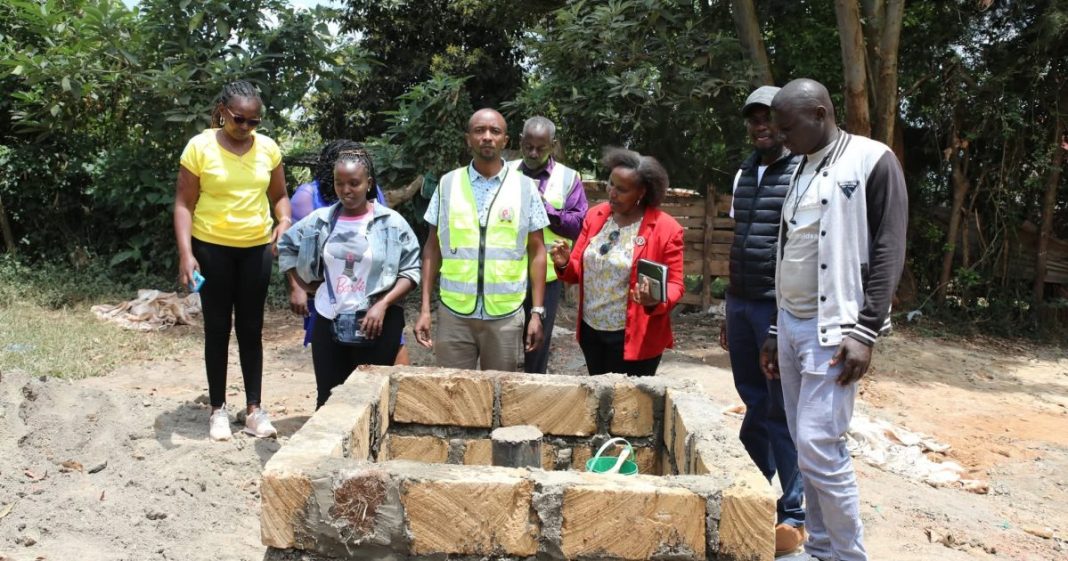Residents of Nyathuna Ward in Kabete Sub-County are set to benefit from a new solar-powered borehole, marking a major milestone in Kiambu’s efforts to combat water scarcity and strengthen climate resilience.
The Githunguri-Gichamu borehole project, implemented under the Financing Locally Led Climate Action (FLLoCA) program, was supervised by the county’s Climate Change Unit and the Ward Climate Committee. The initiative is part of ongoing county measures to ensure sustainable access to clean water amid prolonged dry spells.
Speaking during the site inspection, area MCA Eddy Kinyanjui hailed the project, saying it will “go a long way in addressing water scarcity in the area.”
Once fully operational, the borehole will feature solar-powered pumping systems, an elevated storage tank, and an extensive piping network to serve nearby households. The use of solar energy will ensure uninterrupted water supply while cutting down on electricity costs and supporting green energy goals.
For many locals, the project represents long-awaited relief.
“We’ve had years where we walk for more than two kilometers just to find water, especially during dry seasons,” said Nancy Njoki, a Nyathuna resident. “This project means our children will have clean water nearby, and it will save us a lot of time and effort.”
Kiambu County has been implementing several community-driven climate resilience projects under FLLoCA, including rainwater harvesting systems, catchment protection, and reforestation initiatives. These efforts are aimed at empowering local communities to identify and implement climate solutions suited to their specific needs.
Governor Kimani Wamatangi’s administration has emphasized the importance of sustainable water management and the expansion of renewable energy technologies in delivering lasting solutions to rural water challenges.
The county plans to roll out additional solar boreholes across underserved wards, expand piped water networks, and integrate climate-smart systems into its development plans.
If well maintained, the Nyathuna facility could become a model of community-led climate adaptation, showcasing how locally designed solutions can secure livelihoods in the face of changing weather patterns.







[7529]Dailyjili Casino Philippines: Best Online Slots, Quick Dailyjili Login & Register. Get the Dailyjili App Download for Premium Gaming Action. Join Dailyjili Casino Philippines! Experience fast dailyjili login & register for top dailyjili slot games. Get the dailyjili app download for premium gaming at dailyjili casino today. visit: dailyjili